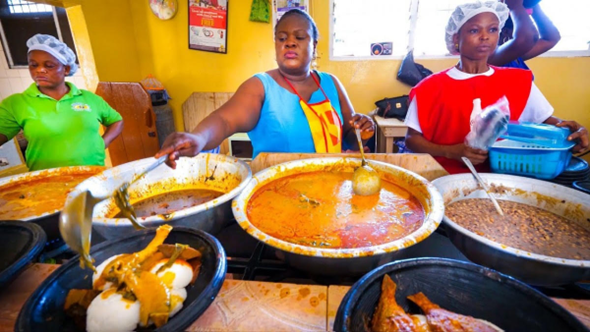Every day of the week, even before sunrise, something special begins to stir in corners of Ghana’s towns and cities. While most people are still preparing for work, the chop bars – small, local food joints, are already in motion. Firewood is lit, ingredients sorted, and large pots begin to boil. It’s a quiet ritual that repeats itself across the country, and yet many don’t stop to think about how essential it is.
From Monday to Saturday, these neighbourhood kitchens do the heavy lifting of feeding Ghana’s working population. The construction workers, market women, drivers, teachers, and students, all rely on these places for warm, filling meals that are both familiar and affordable. The food is not just nourishment. It’s comfort, it’s tradition, and it’s community. And yet, the role of the chop bar in Ghana’s economy is often overlooked.
The Work Behind the Meal:
Behind every bowl of fufu and soup or plate of banku and okro soup, is a long chain of effort. Many chop bar operators start their day as early as 4:00 a.m. just to get ready in time for the breakfast crowd. They don’t have marketing teams or mobile apps. What they have is consistency, word-of-mouth, and loyal customers who show up rain or shine.
Most of these kitchens are run by women, some of whom have been in the trade for decades. They often operate with very little support, no formal training, no subsidies, sometimes no electricity. Yet, they manage to produce food in large volumes, keep prices reasonable, and stay open for years. That is no small feat.
But they do something far more important. They feed cities. They hold neighbourhoods together. They keep Ghana running from the ground up.
Instead of being seen as an afterthought, they deserve to be recognised for what they are: essential.
What they need isn’t a complete overhaul or heavy regulations. Just simple things, clean water, fair treatment, and a bit of support to improve hygiene and scale safely.
Because when the fires are lit every morning, and the pots begin to simmer, what’s really being cooked is not just food. It’s dignity. It’s effort. It’s love. And that deserves more than just a passing nod.
By Leo Nelson


